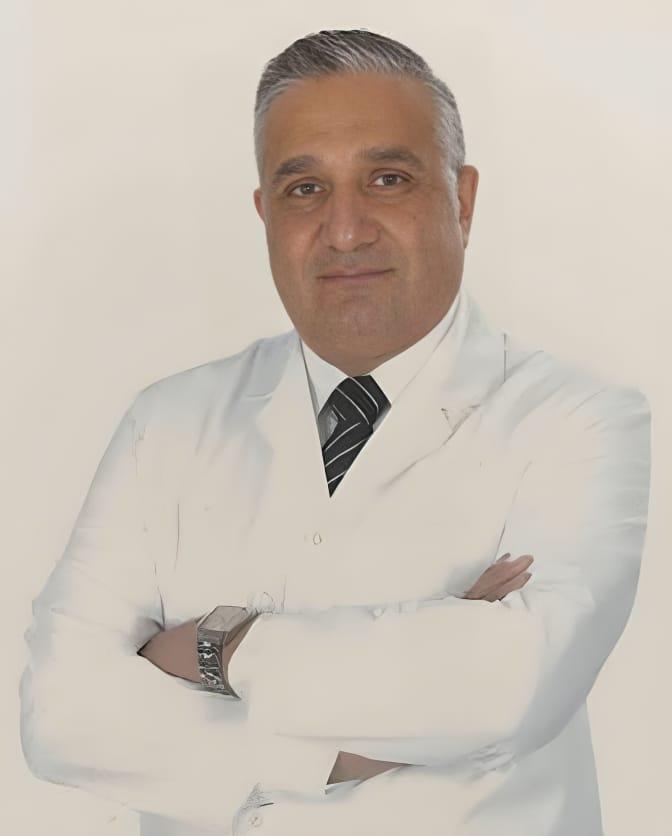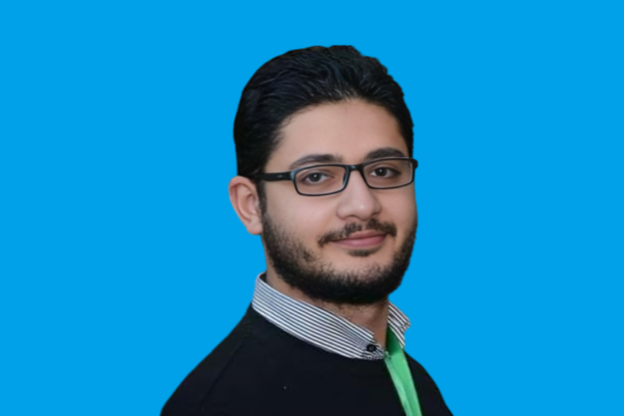Dr. Sherif Morad
Professor of General Surgery, Laparoscopy, and Breast Cancer - Ain Shams University
About Dr. Sherif Morad
Dr. Sherif Morad is a Professor of General Surgery and Breast Cancer at Ain Shams University, with extensive experience in treating cancers and general surgery using the latest laparoscopic techniques. He obtained his Doctorate in General Surgery from Ain Shams University in 2012 and specializes in breast cancer surgery, general surgery for adults and children, and specialized surgeries for abdominal, endocrine, and hemorrhoidal conditions. Dr. Sherif is renowned for his skills in laparoscopic surgery and is committed to providing outstanding healthcare through modern surgical methods.
Specializations and Medical Services
Dr. Sherif Morad offers a wide range of surgical specialties, including:
Breast Cancer Surgery: Treatment of malignant breast tumors using advanced surgical techniques while preserving breast appearance.
General Surgery for Adults: Includes a wide range of surgeries related to the stomach, intestines, glands, liver, and more.
Abdominal Surgery: Includes precise surgeries for the stomach and intestines, tumor removal, and hernia repair.
Endocrine Surgery: Treatment of diseases of the glands, such as the thyroid, adrenal glands, and lymph nodes.
Gastrointestinal and Laparoscopic Surgery for Adults: Diagnosis and treatment of gastrointestinal diseases using laparoscopic techniques, such as gastroscopy or colonoscopy.
Gastric and Colon Cancer Surgery: Removal of benign or malignant tumors in the stomach and intestines.
Liver and Pancreatic Cancer Surgery: Treatment of tumors in vital organs such as the liver and pancreas.
Surgical Treatment of Various Cancers: Including prostate, lung, bone, and brain cancers.
Obesity and Weight Loss Surgery: Including bariatric surgeries such as gastric sleeve and gastric bypass.
Laparoscopic Surgery: Includes procedures like appendectomy and treatment of bowel diseases using laparoscopy.
Hemorrhoid and Anal Surgery: Surgical procedures to treat anal conditions such as hemorrhoids or anal fissures.
Thyroid Surgery: Surgical treatment for thyroid conditions, including benign and malignant tumors.
Academic and Professional Experience
Doctorate in General Surgery from Ain Shams University (2012).
Consultant in Laparoscopic Surgery and Breast Cancer Surgery, a leading expert in general and breast cancer surgery in Egypt.
Member of the Egyptian Society of Surgical Oncology and the International Society of General Surgery.
Dr. Sherif Morad has a strong track record of successful surgeries and focuses on providing comprehensive care to his patients.
Clinic Location and Working Hours
Address:
1 Abdel Latif El-Mekbaty Street, Heliopolis Square, next to Alfa Market, New Cairo, Egypt.
Phone Number for Appointments and Inquiries:
01205178515.
Working Hours:
Daily from 6:30 PM to 8:30 PM, except Monday from 8:00 PM to 9:00 PM.
Consultation Fee:
400 EGP.
Average Waiting Time:
Approximately 16 minutes.
Why Choose Dr. Sherif Morad?
Advanced Expertise in Cancer and Laparoscopic Surgery: Dr. Sherif Morad is a highly skilled surgeon in cancer surgery, particularly in breast cancer and gastrointestinal cancers, using minimally invasive techniques that ensure faster recovery and better outcomes.
Comprehensive Patient Care: Dr. Sherif offers exceptional medical care with a focus on providing a comfortable experience for patients.
State-of-the-Art Techniques: Dr. Sherif uses the latest advanced surgical techniques to treat cancers and other medical conditions, ensuring the best results with minimal complications.
Medical Services Provided by Dr. Sherif Morad:
Accurate Diagnosis and Effective Treatment of Breast, Stomach, Colon, and Liver Cancer.
Prostate, Lung, Bone, and Brain Cancer Surgery.
Obesity and Weight Loss Surgery such as gastric sleeve and bypass surgeries.
Advanced Laparoscopic Procedures such as appendectomy and bowel treatment.
Hemorrhoid and Anal Surgery using modern techniques for quicker recovery.
Thyroid Surgery for treating thyroid conditions effectively.



